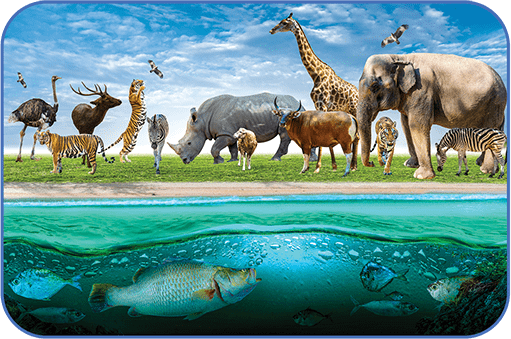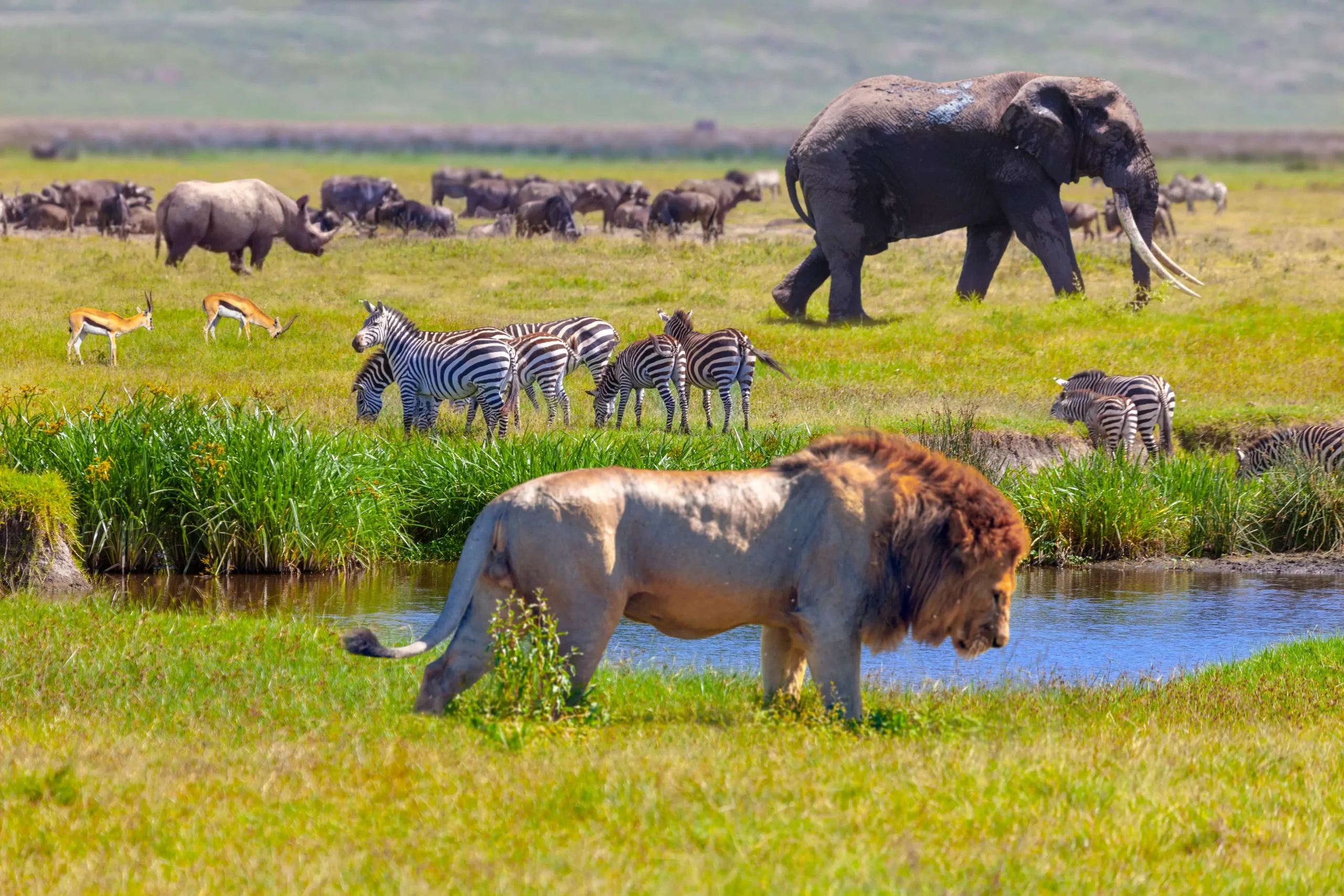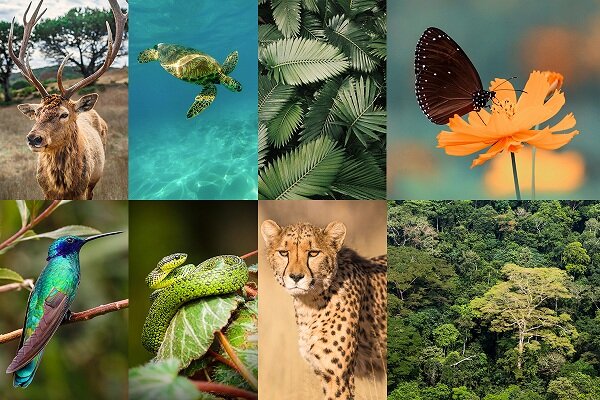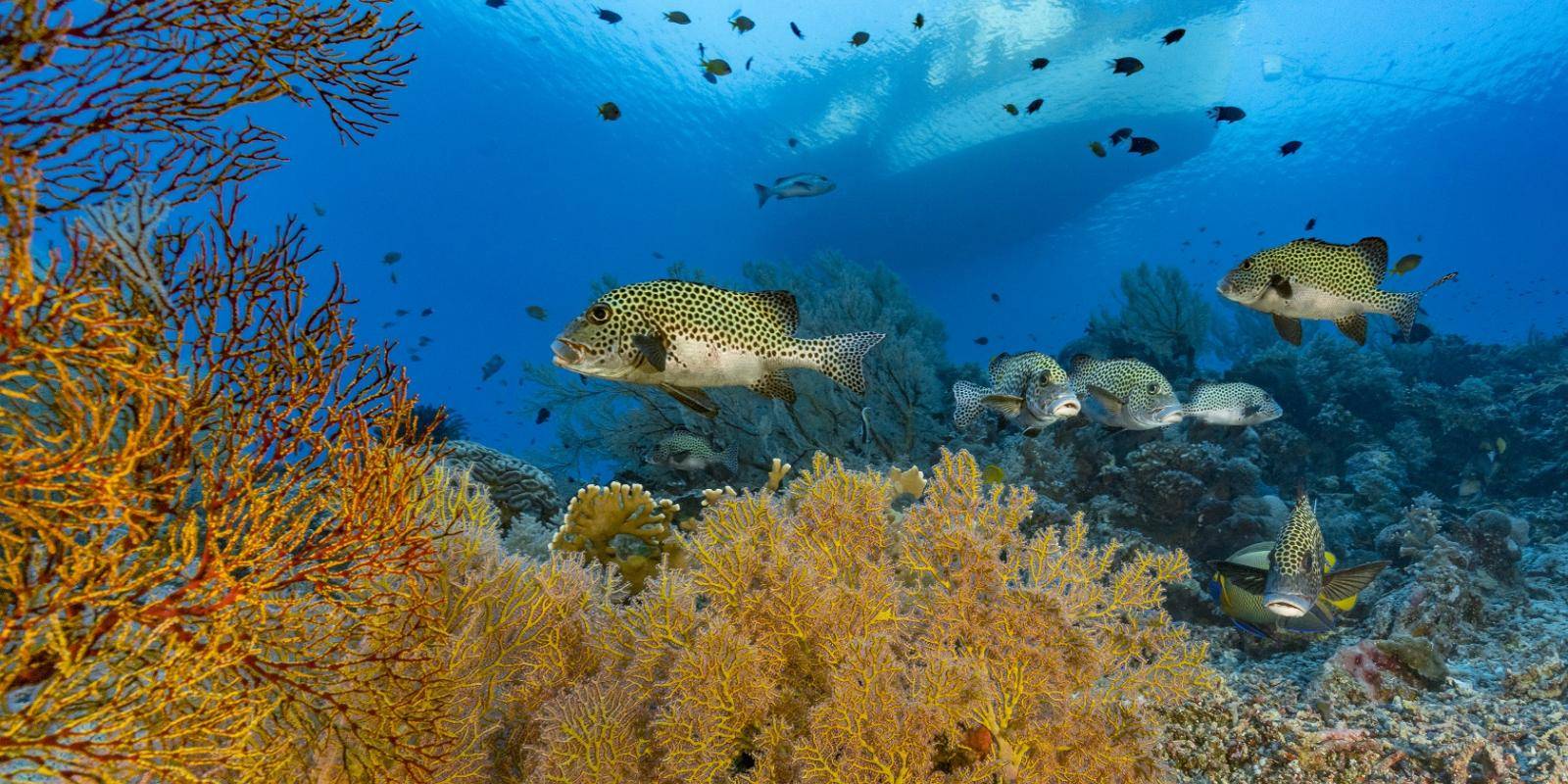Biodiversity, short for biological diversity, refers to the variety of life forms on Earth, including plants, animals, fungi, and microorganisms, as well as the ecosystems they inhabit. It is the cornerstone of healthy ecosystems and plays a critical role in sustaining life on our planet. In this article, we explore the significance of biodiversity, its importance to human well-being, and the threats it faces in the modern world.
Contents
The Importance of Biodiversity:

Ecosystem Stability:
Biodiverse ecosystems are more resilient to environmental changes, including climate fluctuations and natural disasters. They provide essential services such as clean air and water, soil fertility, and carbon sequestration, which are vital for human survival and well-being.
Food Security:
Biodiversity is the foundation of agricultural productivity, providing a diverse array of crops, livestock, and wild plants that contribute to global food security. Genetic diversity within plant and animal species enhances their resilience to pests, diseases, and changing environmental conditions, ensuring a stable food supply for future generations.
Medicinal Resources:
Many pharmaceutical drugs and traditional medicines are derived from natural sources found in biodiverse ecosystems. Biodiversity serves as a vast reservoir of genetic and chemical diversity, offering potential cures and treatments for various diseases and health conditions.
Cultural Heritage:
Indigenous cultures and traditional societies around the world have deep connections to their local environments and rely on biodiversity for spiritual, cultural, and economic purposes. Preserving biodiversity gengtoto is essential for safeguarding cultural diversity and promoting intergenerational knowledge transmission.
Threats to Biodiversity:

Habitat Loss and Fragmentation:
Human activities such as deforestation, urbanization, and agricultural expansion have led to the destruction and fragmentation of natural habitats, threatening countless plant and animal species with extinction. Loss of habitat disrupts ecosystems, reduces biodiversity, and diminishes the ability of species to adapt to changing conditions.
Climate Change:
Rising temperatures, shifting precipitation patterns, and extreme weather events associated with climate change pose significant challenges to biodiversity conservation. Species that are unable to migrate or adapt quickly enough may face population declines or local extinctions, disrupting ecological relationships and ecosystem functioning.
Pollution:
Pollution from industrial, agricultural, and urban sources contaminates air, water, and soil, harming biodiversity and ecosystem health. Chemical pollutants, plastic waste, and nutrient runoff degrade habitats, poison wildlife, and contribute to the decline of vulnerable species.
Invasive Species:
The introduction of non-native species into new environments can have devastating consequences for native biodiversity. Invasive species outcompete native species for resources, prey on native organisms, and disrupt ecosystem dynamics, leading to declines in bio diversity and ecosystem instability.
Conservation Strategies:

Protected Areas:
Establishing and effectively managing protected areas, such as national parks, wildlife reserves, and marine sanctuaries, is crucial for preserving biodiversity and safeguarding endangered species and habitats.
Habitat Restoration:
Restoring degraded ecosystems through reforestation, wetland restoration, and habitat rehabilitation initiatives helps revitalize biodiversity and enhance ecosystem resilience.
Sustainable Land Use Practices:
Promoting sustainable agriculture, forestry, fisheries, and urban planning practices minimizes habitat destruction, reduces pollution, and promotes coexistence between humans and wildlife.
Community Engagement:
Engaging local communities, indigenous peoples, and stakeholders in bio diversity conservation efforts fosters stewardship, empowers marginalized groups, and promotes equitable and inclusive conservation outcomes.
Biodiversity is a priceless treasure that sustains life on Earth and enriches our planet with beauty, wonder, and abundance. Protecting and preserving bio diversity is not only a moral imperative but also essential for securing a sustainable future for humanity and all living beings. By embracing the principles of conservation, sustainability, and respect for nature, we can ensure that bio diversity thrives for generations to come.
Exploring the Pros and Cons of Biodiversity: A Critical Balancing Act
Biodiversity, the variety of life forms found on Earth, is a fundamental aspect of our planet’s natural heritage. From lush rainforests teeming with diverse flora and fauna to vibrant coral reefs bustling with marine life, bio diversity enriches ecosystems and sustains life in myriad ways. However, this precious resource faces both benefits and challenges in the modern world. In this article, we delve into the advantages and disadvantages of biodiversity conservation.

Advantages of Biodiversity:
- Ecosystem Stability: Biodiverse ecosystems are more resilient to environmental changes, such as climate fluctuations and natural disasters. A wide variety of species ensures that ecological functions, such as nutrient cycling, pollination, and pest control, remain intact, contributing to ecosystem stability and sustainability.
- Genetic Resources: Bio diversity provides a vast reservoir of genetic diversity within species, offering potential solutions to challenges in agriculture, medicine, and biotechnology. Genetic variation enhances the resilience of plant and animal populations to diseases, pests, and changing environmental conditions, ensuring food security and promoting innovation.
- Economic Benefits: Bio diversity supports various industries, including agriculture, forestry, fisheries, and tourism, generating employment opportunities and economic growth. Ecosystem services such as water purification, soil fertility, and carbon sequestration have tangible economic value, contributing to human well-being and livelihoods.
- Medicinal Discoveries: Many pharmaceutical drugs and traditional medicines are derived from natural sources found in biodiverse ecosystems. Bio diversity serves as a rich source of bioactive compounds and therapeutic agents, offering potential cures and treatments for various diseases and health conditions.
Disadvantages of Biodiversity:
- Habitat Loss and Fragmentation: Human activities such as deforestation, urbanization, and agricultural expansion have led to the destruction and fragmentation of natural habitats, threatening countless plant and animal species with extinction. Loss of habitat disrupts ecosystems, reduces bio diversity, and diminishes the ability of species to adapt to changing conditions.
- Invasive Species: The introduction of non-native species into new environments can have devastating consequences for native bio diversity. Invasive species outcompete native species for resources, prey on native organisms, and disrupt ecosystem dynamics, leading to declines in bio diversity and ecosystem instability.
- Pollution: Pollution from industrial, agricultural, and urban sources contaminates air, water, and soil, harming bio diversity and ecosystem health. Chemical pollutants, plastic waste, and nutrient runoff degrade habitats, poison wildlife, and contribute to the decline of vulnerable species.
- Climate Change: Rising temperatures, shifting precipitation patterns, and extreme weather events associated with climate change pose significant challenges to bio diversity conservation. Species that are unable to migrate or adapt quickly enough may face population declines or local extinctions, disrupting ecological relationships and ecosystem functioning.
Conclusion:
Biodiversity is a priceless treasure that sustains life on Earth and enriches our planet with beauty, wonder, and abundance. While biodiversity offers numerous benefits, including ecosystem stability, genetic resources, economic prosperity, and medicinal discoveries, it also faces threats such as habitat loss, invasive species, pollution, and climate change. Balancing the conservation and sustainable use of biodiversity is essential for securing a harmonious relationship between humans and the natural world, ensuring that future generations inherit a planet teeming with life and vitality.
Read More Article About “Max Holloway: Champ The Rise of a UFC Champion 2024“

